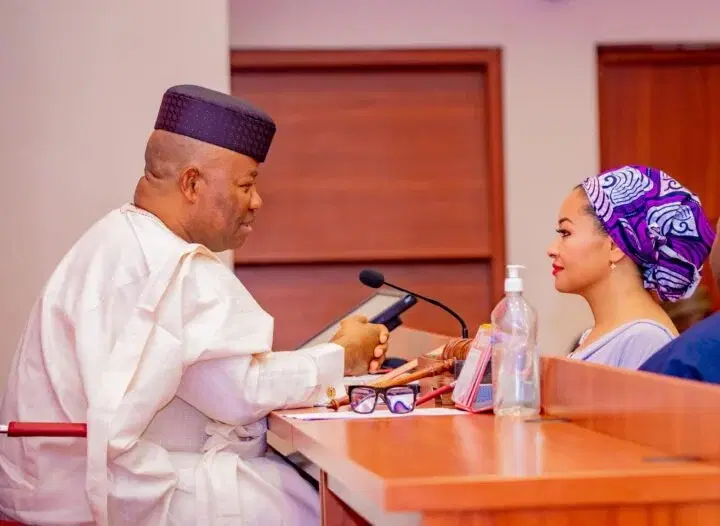***Denounces Allegation as Political Blackmail, Urges Swift Police Action
Senate President Godswill Akpabio has fired back at suspended Senator Natasha Akpoti-Uduaghan, petitioning the Inspector General of Police, Kayode Egbetokun, over what he describes as a “malicious and false” assassination allegation designed to incite unrest and damage his reputation.
The petition, dated April 3 and also forwarded to the Attorney General of the Federation and Minister of Justice, Lateef Fagbemi, SAN, calls for an immediate investigation and prosecution of the Kogi lawmaker under criminal defamation and incitement laws.
Akpabio’s reaction follows comments made by Akpoti-Uduaghan during a homecoming rally in Kogi State on April 1, where she claimed the Senate President had instructed former Governor Yahaya Bello and Governor Usman Ododo to orchestrate her assassination. She alleged the plan was to stage the attack as coming from political opponents in her district.
In a strongly worded response, Akpabio dismissed the allegations as “a dangerous fabrication” and “a politically motivated smear campaign.”
“This is not just a lie — it’s a reckless attempt to stir political instability, incite the public, and endanger my life,” he stated.
He argued that the widespread circulation of the claim on social and traditional media platforms made it imperative for security agencies to act swiftly to prevent misinformation from eroding public trust and peace.
Akpabio urged the police to apply the full weight of the law, citing criminal falsehood, defamation, and conduct likely to breach public peace as grounds for prosecution.
“Public officeholders cannot use falsehood as a political weapon. There must be consequences for incendiary rhetoric that threatens our democratic fabric,” he added.
The development has heightened tensions at the National Assembly, where Akpoti-Uduaghan’s recent suspension has already sparked controversy and drawn criticism from civil society groups and opposition figures.
As the political fallout continues, observers say the unfolding drama may signal a deeper rift within Nigeria’s power corridors, one that could test the limits of political accountability and freedom of expression.

